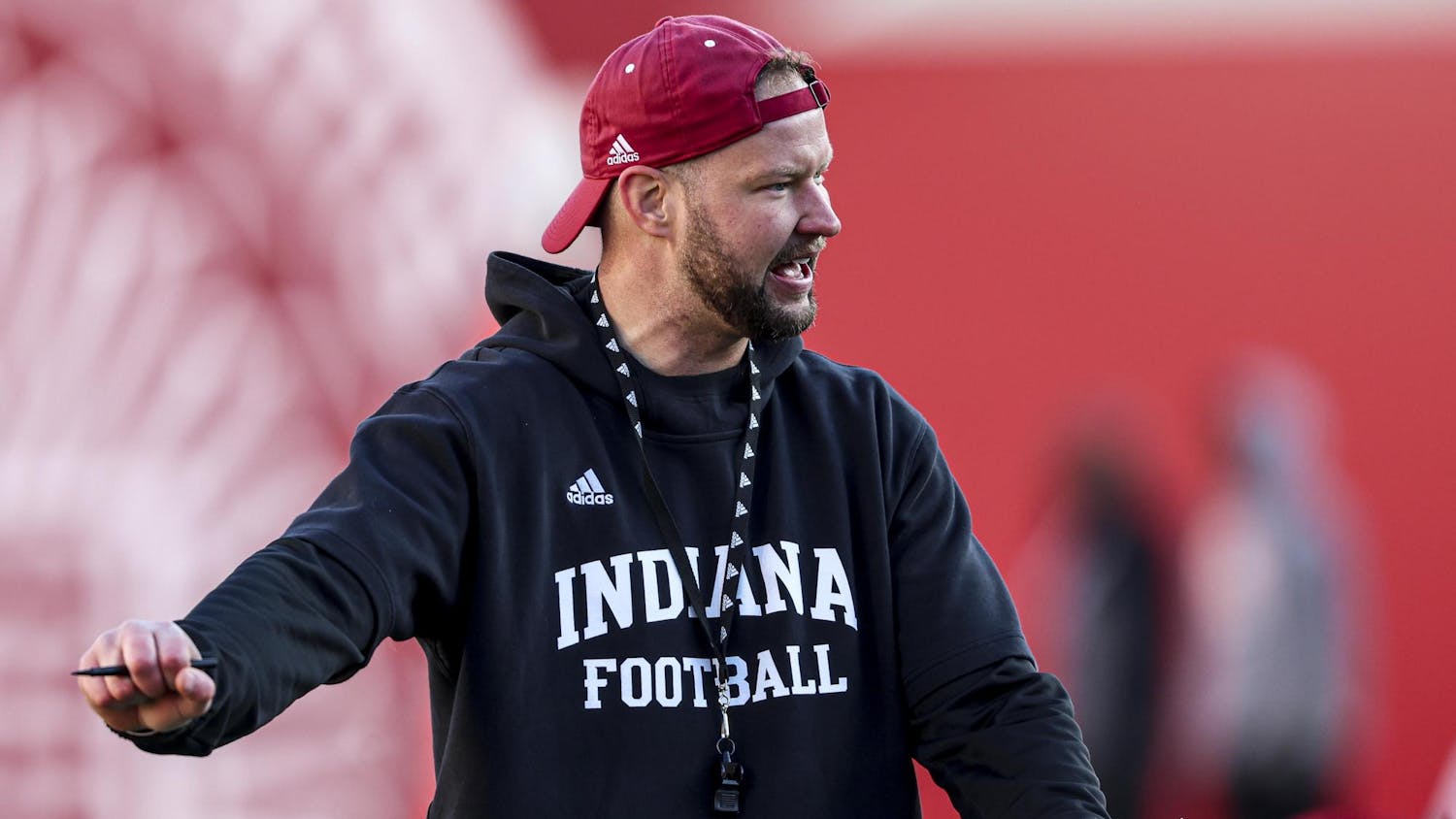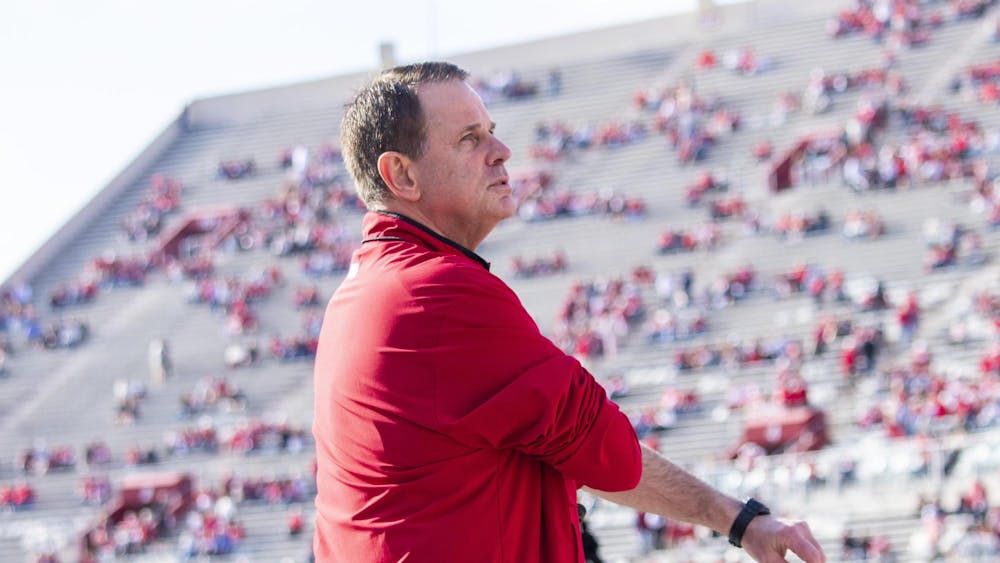Meet Navaar. Following a serious accident, Navaar's right eye-socket was shattered, and his face was half-paralyzed. His survival seemed unlikely. \nNavaar's story is one of tragedy, struggle and defying the odds. \nNavaar is a horse. \n"People can relate to this horse, having been disabled himself," said Fern Bonchek, Navaar's owner and founder of People and Animal Learning Services.\nBonchek donated her own horse to PALS, a program that provided therapeutic riding instruction to individuals with physical, emotional and cognitive disabilities. \nMade up of three paid staff, five volunteer instructors and 150 weekly volunteers, this non-profit organization instructs disabled individuals ages four and up. It also sponsors an at-risk youth program in partnership with IU. The therapeutic lessons taught at PALS are equine-assisted activities, which can improve disabilities like Down syndrome, cerebral palsy, muscular dystrophy and other impairments.\n"It's fantastically useful," Chris Holmes, a pediatrician and instructor at PALS said. "As a physician, I got exposed to it, and it made perfect sense." \nOn a physical level, horseback riding relaxes tight muscles, builds strength and improves balance and coordination. On an emotional level, the activity provides motivation for disabled individuals, as well as relaxation and self-esteem, according to the PALS Web site. \n"The movement of the horse is the same motion as the human walk," Bonchek said. "That motion can help people learn balance, coordination and memory skills." \nThe dozen horses used by PALS provide plenty of motivation in the 1,200 lessons they are expected to give this year, alone. "I like it here," 38-year-old Steve McGovern said, as he put on his riding helmet. \nOne of the 12 PALS students to attend Indiana's Special Olympics this summer, McGovern took home a silver medal. McGovern's mother, Diana, recently started volunteering at PALS. She said the therapy has had a noticeable impact on her son. \n"It's great ... he has better concentration and more confidence. He looks forward to it," she said. \nAs an owner of two dogs and three cats, Diana believes McGovern's condition -- fragile x-syndrome -- is improved by the presence of animals. \n"It's something about horses, though ... there's just something different about horses and riding," she said. \nBonchek agrees. \n"It does something for them," she said.\nAfter obtaining a degree in psychology in San Diego, Bonchek, whose mother established a therapeutic riding program in Bloomington, decided to follow the same path. \n"I've always loved horses, and I've always wanted to help people," Bonchek said. \nBecause PALS is a non-profit organization, it relies chiefly on donations and volunteer work. Donation sources often include scholarships and grants, as well as funding from the United Way. \n"There's a small charge for lessons, but no one is denied riding because they can't pay," Bonchek said. \nBonchek also teaches a course at IU -- "Intro to Therapeutic Riding." The class volunteers at PALS, along with others interested in helping. \n"It's a really good place to get experience with volunteering and fund-raising," Bonchek said. \nBut you don't have to be disabled or a volunteer to participate in PALS. The organization also sponsors able-bodied riding lessons for participants ages six and up, at the price of $20 per lesson. \n"You can't duplicate these results in physical therapy," said Holmes. "It's fun, and people want to come."\nAnd regardless of why riders choose to join PALS, animals have an affect on everyone. \n"An animal has unconditional love," Bonchek said.\n-- Contact staff writer Hannah Lodge at hjlodge@indiana.edu
Horses of hope
Local program offers learning experience
Get stories like this in your inbox
Subscribe





